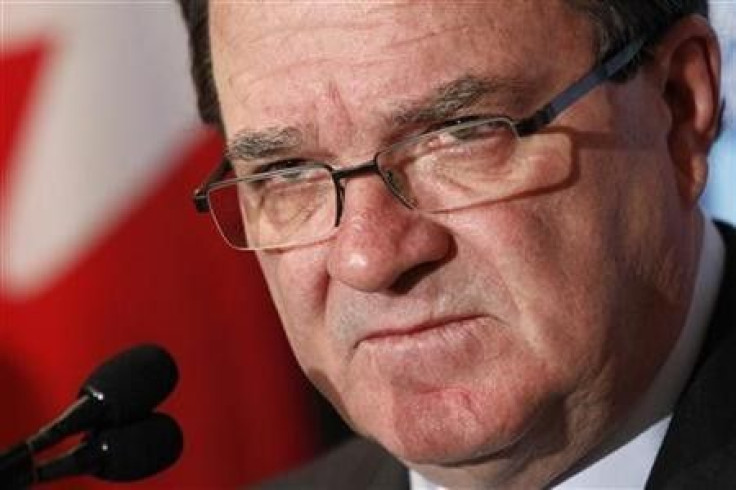Canada hopes for exemption on U.S. FATCA rules

Finance Minister Jim Flaherty voiced cautious optimism on Wednesday that Canada would be granted an exemption from an onerous U.S. tax reporting law that he called an inefficient use of capital.
But the U.S. Treasury said an exemption for Canada was not under consideration.
Flaherty said in a speech in New York that he had spoken to U.S. Treasury Secretary Timothy Geithner about the regulation, known as FATCA, or the Foreign Account Tax Compliance Act, which will require overseas banks to report on U.S. clients to the Internal Revenue Service.
Asked at a news conference whether he thought Canada could get an exemption, he said: We've had very useful discussions with the American officials and they understand that the goal of the legislation is to get after tax evaders using tax havens, and that Canada is not a tax haven.
He added: I think we're getting some progress - we're not there yet. Cautiously optimistic, but we have to get there.
FATCA will require overseas banks to report U.S. clients with more than $50,000 in assets to the IRS, or withhold 30 percent of the interest, dividend and investment payments due those clients and send the money to the IRS.
Responding to Flaherty's remarks, U.S. Treasury spokeswoman Sandra Salstrom said in an email to Reuters: We're talking with foreign governments to figure out how we can implement FATCA in a cooperative way and leverage our existing relationships, but Treasury is not considering exempting specific countries from FATCA.
There are a large number of American-Canadian dual citizens in Canada, who would be subject to the new rules. Flaherty pointed out that Canada and the United States already have a bilateral agreement on tax information exchange that covers most of the information being sought by FATCA.
The new regulation has drawn criticism from the world's banks and business people about its reach and costs. In June, the private banking arm of HSBC said it would stop offering services to U.S. residents outside the United States because of the cost of complying with the rule.
Some Swiss bankers are advising clients to steer clear of U.S. securities ahead of the FATCA law coming into effect.
Hundreds of millions of dollars spent on developing compliance processes to target Canadian citizens would not be a useful exercise, and they are, for the most part, people who actually have no tax liabilities because they do not earn income in the United States, Flaherty said.
© Copyright Thomson Reuters 2024. All rights reserved.











